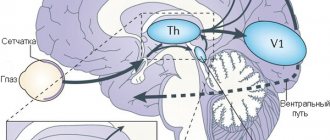“If I don’t get an A, I’m a loser.”
“We spend our whole lives trying to achieve excellent results from ourselves and our children, and then it turns out that the “excellent student syndrome” is bad. Why?
“Before I changed my profession and encountered psychotherapy, I myself suffered for a long time and unknowingly from the “excellent student syndrome.”
I remember when I went to first grade. All the children go and rejoice: flowers, “adult” life ahead. And I was immediately afraid of getting a bad grade, although no one scared me about it. There are photographs from the very first day of school: me with a bouquet in one hand, with the teacher’s hand in the other and with an unhappy face. Then, as an adult, I experienced terrible jitters during all exams.
– But the desire to study well is really bad?
– It is believed that excellent students are drawn to knowledge. But if you carefully observe people with “excellent student syndrome”, it turns out that they do not need knowledge, but a grade, and the highest one at that. For them, the highest value is acceptance, approval and love. Such a person is convinced that if he is not an excellent student, they will not love him.
Even before school, a child with “excellent student syndrome” wants to be first always and everywhere.
There can be two scenarios for the development of this syndrome. If a child does not have the potential to be an excellent student, he gives up and the thought turns on: “I don’t want to study at all!” - such a reverse side of his way of thinking.
The second scenario is that the child tries to complete the task at any cost because he is afraid: otherwise his parents will not love and approve of him.
However, do not confuse the “excellent student syndrome” with perfectionism.
A perfectionist strives to do everything perfectly, but will not do it at any cost, and an “excellent student” will “go over corpses” in order to achieve an “A.”
A person with “excellent student syndrome” will achieve an “A” by any means - he can cheat, spy, or cheat. Or take a page out of the diary, start a separate diary for parents (now this won’t work with electronic diaries), but do not show other grades other than excellent grades at home.
This is not acceptable for a perfectionist. Perfectionists focus on the work itself, while people with “excellent student syndrome” focus on the result and the perception of this result by others.
Children and adults susceptible to the “excellent student syndrome” often perceive a task as a kind of competition in which they must win, while having a negative attitude towards “competitors.” A perfectionist thinks more about work, and not about the fact that he has rivals.
The most dangerous belief that is formed during the “excellent student syndrome” is that a “B” is not a grade at all.
It would seem that there is something wrong with a B, but inside the child a binary system is already working: all or nothing, if I don’t get an A, I’m a nonentity. And, even if the parents scold only slightly, the child can eat himself by the time he gets home from school.
What is its danger?
It would seem, how could this syndrome be dangerous? An “excellent student” takes a responsible approach to each task, strives to complete it in the best possible way and earn approval for his work.
But this is only at first glance.
A person with excellent student syndrome is constantly in a state of emotional stress and anxiety. This adversely affects both his physical and mental health.
At the body level, “excellent students” experience the following problems:
- frequent colds;
- exhaustion, asthenia;
- psychosomatic phenomena (headaches, dizziness, high blood pressure and others);
- sleep disorder;
- gastrointestinal diseases.
At the mental level there are:
- emotional stress, nervous breakdown;
- the appearance of phobias and fears - fear of public speaking, fear of meeting new people;
- neuroses and depression.
As we see, excellent student syndrome is not as harmless as it seems. If you notice these manifestations in yourself or your child, be sure to seek help from a specialist.
"Excellent student syndrome" in adults
Photo from steveseay.com
– It’s clear whose love the child is trying to earn by getting straight A’s. And whose love is a young mother trying to earn when she begins to make her child ideal - torturing him with the right construction sets, early development and English from the age of eight months?
– She is trying to earn the love of either her parents or that “great parent”, the image of which is in the head of each of us. Sometimes, even being an atheist, a person seeks approval and love from such an image.
Very often, growing up to prove to the whole world that they are not insignificant, such mothers will prove to everyone that they are the best mothers in the world.
To do this, their child must be the best: best dressed, learned the most English words at 8 months.
And, unfortunately, there are also a lot of churchgoers with “excellent student syndrome.” They live by the principle: “Every Sunday I must be at the service, if I don’t come to it, the Lord will punish me.
I must bring a list of my sins to the service and account for them.” Of course, I’m exaggerating a little, but their thoughts are developing precisely in this direction.
- “If I do something wrong, I will be punished.” How does a religious idea turn into a construct in which there is no place for love?
– The idea could have arisen from a real (and not in words) lack of love in the family, from the fear of loving oneself, because there is always the risk of “getting a bad mark”, of being “not the best”; due to the inability to endure suffering. The thought is formed: “Love is painful, it is impossible to love” and the behavior of people who grew up in a lack of love: they themselves do not know how to love and are afraid, but they really want to get what they did not receive.
At the same time, they are sure that love must be earned. But the fact that God loves everyone, whether they are excellent students or poor students, as, for example, in the parable of the prodigal son, is not clear to them.
But there are many saints who were not good at science since childhood. These are Sergius of Radonezh and John of Kronstadt.
The Lord gave them the experience of being unable to learn, and when they lived and accepted this experience, they were given both knowledge and abilities.
Where do legs grow from?
There may be several reasons for the development of excellent student syndrome.
- Parents who experienced failure in their childhood try to achieve through their child everything that they themselves were once unable to achieve. Thanks to their children’s victories, they raise their self-esteem and confirm their own status.
- The child tries to earn the love of his parents through A's. Only through his successes can he attract their attention and hear praise.
- The child has low self-esteem, which was formed even before school, when parents reacted negatively to their child’s mistakes, forgetting that he is just learning to live and making mistakes is natural. At school, the situation is aggravated by the stress that the child experiences in a new environment. And then his parents constantly compare him with other children: they say, Masha wrote a good paper, but why are you disgracing us?
Hereditary scenario
Photo from the website b17.ru
– The behavior of an excellent student is often a hereditary scenario, which in Russia dates back to Soviet times.
There were times when our society lived from five-year plan to five-year plan, and they tried to fit even that into four, or better yet, three years. This was the case during industrialization and after the war, when it was necessary to restore the country.
Results and pace were demanded from people, while no one took into account needs, did not think about safety, and certainly did not look at the abilities of each individual person and at what price everything was given to him.
As a result, a whole generation developed the belief: “We should have become excellent students, but we couldn’t, so our children are obliged to make this dream come true.”
This is our Russian ancestral dream: sometimes you work with a client, and the image of some great-grandmother pops up, who was convinced that “you need to study well, otherwise you will become a janitor.” And this belief is passed on to grandchildren and great-grandchildren until someone realizes and changes this system.
Now people come to me who spin like squirrels in a wheel and cannot at all understand what talents and abilities they have. They live in isolation from themselves, and their only goal is to be the best. At the same time, the pressure intensifies in each new generation, and this idea turns into neurosis.
Of course, there were no five-year plans in the West, but there is a syndrome. And there were terrible examples of worship of leaders - their “great fathers”. The “excellent student syndrome” generally develops favorably in the age of wars and industrialization, when parents experienced some kind of troubles, generational trauma and could not give their children enough emotional presence.
Or it happens differently: the parents studied well, but for some reason the child cannot cope. And they start telling him: “Look at us!” But at the same time they hide some of the information and don’t tell them that they didn’t always have straight A’s.
The scenario with the “excellent student syndrome” can be absorbed literally with mother’s milk: sometimes it happens that the child has not yet started school, they have not yet begun to really teach him anything in kindergarten, but the syndrome already exists.
How to recognize “excellent student syndrome”
Photo from yourcareeverywhere.com
– How to distinguish a person with “excellent student syndrome” from a real excellent student?
– A person with the syndrome does not accept criticism. He often experiences uncertainty: his condition is like a swing, where the thought “I am the best” is quickly replaced by the thought “I am a loser and a nonentity.” If you need to start a new business, a person with “excellent student syndrome” falls into a stupor - because he does not know in advance whether he will do an excellent job.
Another important sign of the “excellent student syndrome” is jealousy of the successes of others: “How come this person did better, but I can’t keep up with him?” The child begins to rejoice at other people’s failures and envy.
We envy when we see someone did something that we could have done, but didn’t. Either we would like to do it better, but we didn’t succeed, or we wanted to do it perfectly, and someone did it. Envy is an inevitable consequence of the “excellent student syndrome.”
Another sign is when a child begins to become very dependent on praise. For example, he begins to have tantrums when someone does not appreciate how he performs household duties. Although his responsibilities are small - take out the trash or feed the cat.
There is also a fear of failure - for example, a child honestly prepares for an exam, but gets a bad mark. Because he started writing, made a mark and understands: he will no longer get an A for this work. And he doesn’t need another assessment.
To notice the “excellent student syndrome” in yourself, it is useful to develop awareness.
It is very useful to periodically ask yourself: “When was the last time I was happy?”
Sooner or later you notice that your life is an endless race for results, but there is still no joy from the results, the need is not satisfied.
Negative consequences of excellent student syndrome
In elementary school, schoolchildren with this syndrome develop tics and obsessive actions. They wash their hands too often, constantly comb their hair, and arrange their books in a strict order. Children are susceptible to colds and headaches.
The syndrome of an excellent student or an excellent student in adolescents is expressed in the form of fears of speaking in front of an audience. They have difficulty coping with tasks where they need to show their imagination and creativity. Communication with other children is also difficult for them.
Excellent student syndrome in adults can create problems in work, home and family life.
Characteristic features:
- selection of initially difficult tasks;
- approach to solving them with maximum effort;
- expectation of approval, high praise;
- neglect of one's preferences and desires.
If you do not work with psychologists, the syndrome progresses over the years. Its complications include mental illnesses and psychosomatics: neuroses, depression, asthma, hypertension.
Demo lessons on the Coaching program
Get access
Excellent students on the honor board
Photo from the site baikal-info.ru
– Does modern school cultivate the “excellent student syndrome”?
- Very often, unfortunately. Sometimes parents are even afraid to go to parent-teacher meetings.
Parents come and sit all sweaty, worried that they will now name their child and scold him in public. And then they dump their shame and anger on the child.
Fortunately, some teachers are now abandoning the practice of discussing children in front of everyone. All children have different abilities and opportunities, but at the same time equal rights.
And, by and large, publicly dissecting a child at a meeting is a kind of teacher manipulation, an attempt to put pressure on parents so that they put pressure on their children, and the children get motivation to study.
A teacher may also have excellent student syndrome, and then an inner voice shouts to her: “You must become a good teacher, the best teacher of the year, you must have the best students!” As a result, there are laureate teachers who have a lot of awards. But not all students can withstand their pressure. Unfortunately, in this case, the teacher realizes his “excellent student syndrome” through his students.
– How does the excellent student syndrome affect the current corporate culture, where there is “best salesman of the month”, “best office manager”, “best division of the quarter”?
– It fits very tightly, I can confirm this as a former HR person. When working with personnel, there is such a concept - “non-material motivation”. It is impossible to endlessly increase employees' salaries - the needs are still growing and the person, in the end, will not be satisfied. Then the employer begins to come up with some “tricks”. One of them is taken from our Soviet times, when portraits of leaders in production hung on the honor board.
The same honor boards appear, and the material incentive can be very small - for example, an extra day for vacation. This is beneficial for the corporation.
How to get rid of the syndrome of an excellent student and an excellent student?
The psychologist begins work with diagnostics. It uses:
1. Conversation.
The specialist listens to complaints that concern the client. Makes a preliminary diagnosis based on what he hears. In psychology, symptoms of excellent student syndrome in adults include:
- fear of error;
- depressed state after failure or bad evaluations of his work;
- euphoria after receiving a reward, public recognition of success.
2. Testing and questioning.
Used to study the level of self-esteem, internal values, relationships with parents. A set of tests to determine excellent student syndrome is selected by a specialist specifically for each patient, taking into account his gender, age, and symptoms.
3. Projective techniques.
The results reveal the patient’s personality traits that he himself does not recognize. The psychologist reveals problems in interpersonal relationships that the patient may ignore.
Both individual work with a psychotherapist and group trainings help to get rid of the excellent student syndrome. Cognitive behavioral therapy shows good results. With its help, the correct attitudes are introduced into the patient’s life, the person learns to relax, let go of his desire for perfection and concentrate productively under stress.
You will find even more information about psychology and methods that help a person understand their internal problems and create harmony in all areas of life in our “Coaching” blog.
How to motivate and not devalue
Photo from the site protvoysport.ru
– What words or actions can provoke “excellent student syndrome” in a child?
- For example, when they tell a child every time: “When you bring an A, you’re doing great, there will be a cake for you!” At the same time, it is broadcast that, for example, a four is not a result at all. And so any efforts of the child are devalued.
Punishment by deprivation of sweets or a tablet if there is no “A” is also a provocation.
It happens that after receiving a bad grade, a child is ignored, so that when he comes home, he encounters his mother - the Snow Queen.
For greater reliability, they scare the child: “If you study poorly, you will become a janitor!” At the same time, academic success is clearly linked to further success in life and career.
It happens that parents give their child pocket money for an A, and here the “A at any cost” principle comes into play most quickly.
– How to properly motivate a child to study?
– There is no need to focus on super results, there is no need to say: “You must be the first, the best, then we will be proud of you.” Even if a child doesn’t get first place in competitions, we should be happy that he participated in them honestly and to the best of his ability. You need to reward for any good grades, and for B's too.
I have a classmate who now teaches at Skolkovo and teaches businessmen how to make millions. He is a successful business coach and regularly travels to the Silicate Valley. So at school he was a C student. That is, there is no direct connection between a child’s grades in school and his future success in life.
It is important to talk to your child about love for no reason, so that he understands that he is loved because he is, and not because he brought an excellent mark.
My daughter is a first grader, they don’t give them grades, but they give them stickers. And so she comes from school and says: “One girl has 20 stickers, and I have 15, and I also want 20!” And I can already feel which way the wind is blowing, and I tell her: “Think about the guys who have 5 stickers or none. Has this made them worse?
That is, I say all the time: “I’m very pleased that you have so many stickers” (I don’t devalue success). But at the same time I try to make her understand:
the mark is not equal to the person. There are many things in a person. One studies with straight A's, and the other rides a horse or sings like Orpheus.
Otherwise, a chain reaction results: at work you owe your boss, you need to bring more money to your family; You need to be an ideal housewife at home, children must study ideally...
As soon as one person with “excellent student syndrome” appears in the family, the whole family is affected by the spirit of internal competition.
We brand ourselves as a loser, and he shouts at us: “Accept me, relax, stop fighting me!” It’s like with sins - we struggle and struggle, and changes begin only when we accept ourselves, including those who are rejected and weak.
When a child receives a bad grade, do not scold him or say the phrase “next time you will get better.” Tell us about how you got a bad mark, remember how you felt then. Tell him that you understand perfectly well how upset he is right now. That your grades did not prevent you from getting ahead in life, getting your current job, starting a family, giving birth to him.
There is a wonderful English proverb - “don’t educate children, educate yourself.” Don't torment your child with directives, just set a personal example.
But if a parent talks about the benefits of a healthy lifestyle with a cigarette in hand, the child very quickly understands that there are double standards.
In addition, try to diversify your child's activities, do not limit him only to school. Try to notice your child’s abilities from childhood. If he draws, send him to a drawing club, but don’t develop even these hobbies in a directive manner. If a child doesn’t want to go to class today, there is no need to force him.
If a child goes to a class and changes his mind a month later, there is no need to scold him - it is normal for children under fifteen to change their decisions and interests.
This is how a child tests the boundaries of his capabilities and abilities, this is normal.
And in general, remember that evaluation criteria may change over time - “what is good for a Russian is death for a German,” or what was valued yesterday turns out to be completely useless today.








